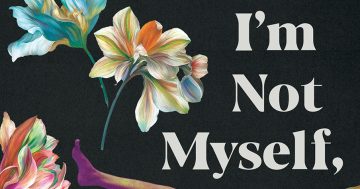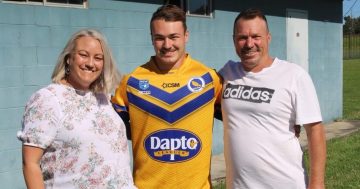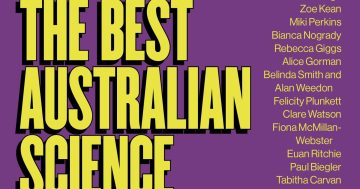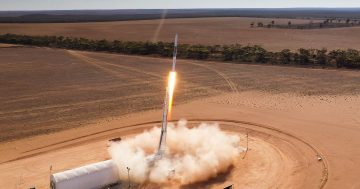Reviewed by Robert Goodman.
By Donna Mazza, Allen and Unwin, $29.99.
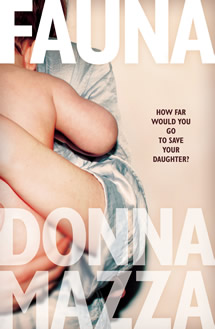 Donna Mazza’s latest novel Fauna takes a fairly gonzo science fictional premise and makes it work. Along the way, she has plenty of things to say about motherhood, genetics, commercialisation of nature, disability and the environment.
Donna Mazza’s latest novel Fauna takes a fairly gonzo science fictional premise and makes it work. Along the way, she has plenty of things to say about motherhood, genetics, commercialisation of nature, disability and the environment.
Stacey and Isak have signed themselves up for a particular form of IVF trial. While their embryo is partially theirs it has been genetically altered as part of a scientific trial. Stacey and Isak joined the trial both to overcome the pain of a couple of miscarriages but also because of the money involved. This is the future, and it is a future in which genetic science is bringing back long dead species, including mammoths and carrier pigeons. Stacey signs up to become part of this movement, agreeing to carry to term a baby who is, at least part, Neanderthal. This is a decision that, while made together, soon puts pressure on their marriage causing Isak to flee for a while to his native South Africa.
Mazza follows Stacey through her slightly unusual and highly monitored pregnancy for the first third of the book. This section in particular hones in the idea of ownership, agency and surveillance. LIFEBLOOD want to monitor every step of the pregnancy to the point of implanting a monitor. Stacey wants to ignore everything she casually signed up for, trying to keep things as normal as possible for her and for her family. When the baby, Asta, is born things in some ways get easier, but Stacey bonds tightly with her latest child (there is some hint of cross genetic mutation while Asta was in the womb) complicating all of her relationships.
Fauna is a fascinating look at the bonds of motherhood told through the lens of a not inconceivable science fiction premise. While Stacey has other children, she bonds most strongly to Asta, to the point where she starts to lose sight of the others. There are both biophysical and emotional reasons for this which Mazza explores, including the stresses of raising a child who is so different from other children (Stacey baulks at the idea that she needs to pretend that Asta has some rare genetic disorder.
As with recent books tackling surrogacy like Joanne Ramos’s The Farm, Mazza takes on the commercialisation of fertility and the impingement of personal rights and freedoms that might go along with that. There is a constant tension between Stacey’s desire to be a mother and the commercial imperatives of those who funded the procedure that allowed her to conceive and give birth in the first place. And when the commercial relationships start to unravel in the background there are flow on effects for Stacey and her family.
There is plenty of food for thought and ideas to consider in Fauna, including the sci-fi favourite of what it means to be human. But this does not detract from emotional story at the centre of Fauna which allows those ideas to percolate and become real for the reader. That this tale remains as engaging as it does is testament to Mazza’s ability to keep these sometimes disparate elements in balance.
This and 500 more reviews can be found at www.pilebythebed.com.


